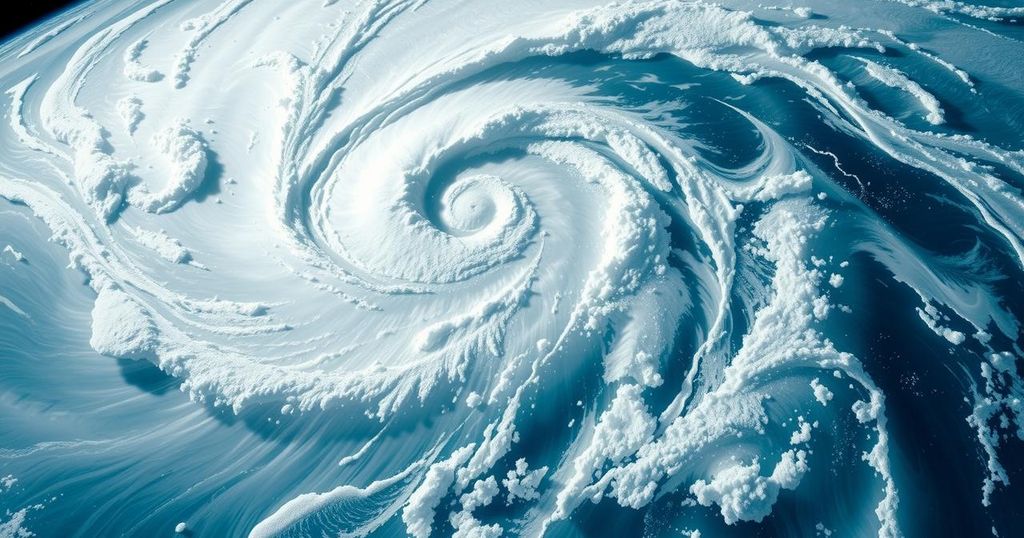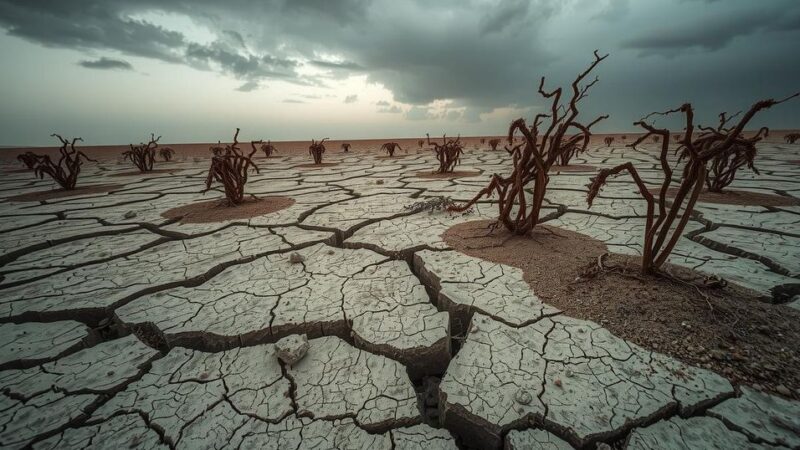A recent study has determined that climate change significantly strengthened Cyclone Chido before it struck Mayotte, increasing the likelihood of powerful cyclones by 40% compared to pre-industrial times. Chido, a Category 4 storm, inflicted unprecedented damage on Mayotte, raising concerns about potentially fatal consequences for its residents. Scientists linked the storm’s intensity to rising global temperatures, which have affected tropical cyclone patterns.
Recent studies conducted by scientists from Imperial College London have indicated that climate change significantly strengthened Cyclone Chido as it approached Mayotte, an Indian Ocean archipelago. The investigation revealed that storms of Chido’s intensity are now 40 percent more probable in a warmer climate, emphasizing the correlation between global warming and increased cyclone strength. Cyclone Chido was classified as a Category 4 storm, the second highest on the Saffir-Simpson scale, and caused extensive damage upon making landfall, marking the most severe cyclone to impact Mayotte in nearly a century.
The destructive force of Cyclone Chido was felt acutely in a region where approximately one-third of the population resides in inadequate housing. Although the complete extent of the catastrophe remains unclear, preliminary reports suggest potential fatalities could reach into the thousands. Scientists from Imperial College employed advanced computer models to assess the cyclone’s characteristics, compensating for the limited availability of real-world data. The results concluded that wind speeds in the vicinity of Chido’s landfall had risen by three miles per second compared to pre-industrial climate conditions.
The study posited that climate change elevated the storm’s intensity, suggesting it transitioned from a Category 3 to a Category 4 cyclone. While France’s meteorological authority has refrained from definitively linking Chido’s strength to climate change, they acknowledged that elevated ocean temperatures resulting from human-induced climate shifts have contributed to increased storm activity. Mayotte bore the brunt of Cyclone Chido, which was significantly influenced by its trajectory over the island, according to Meteo-France. Current climate data shows a rise of approximately 1.3 degrees Celsius since pre-industrial times, leading to a climate system that incites more frequent and severe weather phenomena.
The connection between climate change and tropical storm intensity has become a topic of increasing importance as scientists strive to understand the implications of a warming planet. Global warming, driven by human activities such as fossil fuel combustion, has raised sea surface temperatures, creating an environment conducive to more potent tropical storms. Warmer air can hold more moisture, and this increased humidity, paired with heightened evaporation rates from warmer oceans, exacerbates the conditions leading to intensified cyclones.
In conclusion, Cyclone Chido represents a significant case study in the interplay between climate change and extreme weather events. The findings by scientists suggest that rising global temperatures have materially influenced the storm’s strength. As climate conditions continue to evolve, the frequency and ferocity of cyclones are expected to increase, presenting profound challenges for vulnerable regions like Mayotte, necessitating urgent attention and action towards climate resilience.
Original Source: www.rfi.fr







